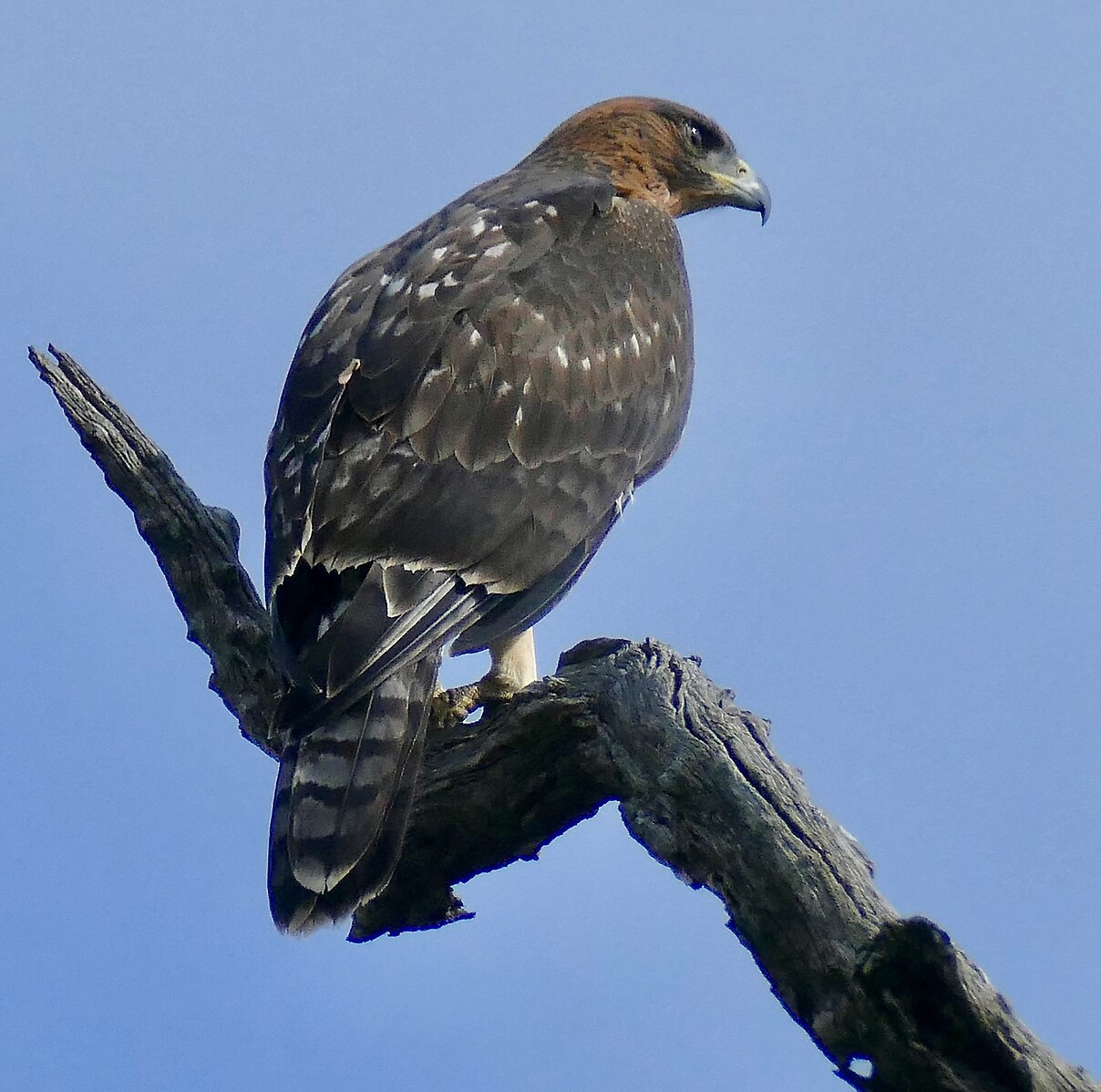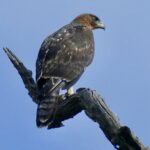African hawk eagles are considered to be highly intelligent birds, with advanced cooperative hunting techniques. These raptors primarily feed on small to medium-sized birds, but they also hunt small mammals, reptiles, and insects. Their exceptional hunting skills, nest-building abilities, and adaptability to various habitats showcase their remarkable intelligence.
Hunting Prowess and Cooperative Techniques
African hawk eagles are skilled hunters, employing a variety of techniques to catch their prey. They are known to:
- Soar high in the sky, scanning the area for potential prey.
- Dive at high speeds (stooping) to catch flying birds.
- Chase and pursue flying prey, using their agility and speed to catch them.
- Crash through the canopy foliage to surprise and capture prey.
- Cooperate with other eagles to coordinate their hunting efforts, increasing their success rate.
These hunting strategies demonstrate the African hawk eagle’s problem-solving abilities, spatial awareness, and communication skills, all of which are indicators of their intelligence.
Nest-Building Expertise
 Image source: African Hawk-Eagle by Bernard DUPONT
Image source: African Hawk-Eagle by Bernard DUPONT
African hawk eagles are adept at constructing large, sturdy nests that can measure up to 129 cm in diameter. They carefully select the nesting site, typically in the fork of a tall tree, and use nearby sticks and twigs to build the nest. They also line the nest with soft, green leaves, showcasing their attention to detail and ability to adapt to their environment.
The construction of these intricate nests requires the birds to possess spatial awareness, problem-solving skills, and the ability to make decisions based on their surroundings. These traits are all associated with higher intelligence in birds.
Adaptability and Habitat Preferences
African hawk eagles are found throughout sub-Saharan Africa, inhabiting a variety of habitats, including wooded savannas, forest patches, and riparian areas. They have also been observed soaring and hunting above urban areas and exotic tree plantations, demonstrating their ability to adapt to changing environments.
This adaptability is a testament to the African hawk eagle’s intelligence, as it allows them to thrive in diverse ecosystems and take advantage of various food sources. Their ability to adjust their behavior and hunting strategies based on their surroundings is a clear indication of their cognitive capabilities.
Interaction with Humans
While African hawk eagles are generally shy, some individuals living in or near towns have become quite tame and comfortable around humans. This suggests that these birds possess the cognitive flexibility to learn and adapt to new situations, including interacting with people.
The fact that some African hawk eagles have become accustomed to human presence and even tolerate close proximity to humans further highlights their intelligence and adaptability. This ability to modify their behavior based on environmental cues is a hallmark of intelligent species.
Conservation Challenges
Despite their impressive intelligence and adaptability, African hawk eagles face several threats, including habitat loss due to deforestation and the killing of individuals that feed on domestic chickens and other fowl. Over the past few decades, they have become scarce to rare outside of protected areas across Africa.
The conservation challenges faced by African hawk eagles underscore the importance of protecting their habitats and educating the public about the value of these intelligent raptors. By understanding and appreciating the cognitive abilities of the African hawk eagle, we can better advocate for their conservation and ensure their continued survival in the wild.
In conclusion, the African hawk eagle is a highly intelligent bird of prey, with advanced hunting techniques, nest-building expertise, and the ability to adapt to diverse habitats. Their cognitive capabilities are evident in their problem-solving skills, spatial awareness, and communication abilities, which are crucial for their survival and success in the wild. By recognizing and understanding the intelligence of the African hawk eagle, we can better appreciate the complexity and diversity of the natural world.


